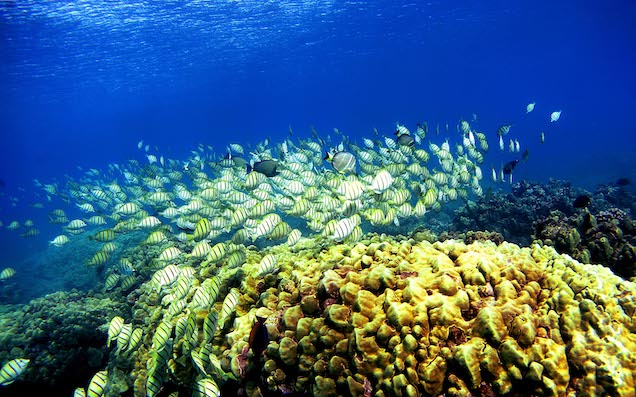
A landmark report from the UN into the state of biodiversity has found that up to one million animal and plant species on the planet are currently threatened with extinction, with many expected to die out within the next few decades.
The Global Assessment Report on Biodiversity and Ecosystem Services is a systematic review of roughly 15,000 scientific and government sources, compiled by 145 authors over the course of three years with contributions from another 310 authors. The report, the summary of which was released today, specifically looks at changes that have occurred over the last five decades. The full report, coming in at 1500 pages, will be released shortly.
[jwplayer SgY57JH9]
Sir Robert Watson, chair of the Intergovernmental Science-Policy Platform on Biodiversity and Ecosystem Services, said that things were, in no uncertain terms, not looking good: “The overwhelming evidence of the IPBES Global Assessment, from a wide range of different fields of knowledge, presents an ominous picture. The health of ecosystems on which we and all other species depend is deteriorating more rapidly than ever. We are eroding the very foundations of our economies, livelihoods, food security, health and quality of life worldwide.”
Watson maintains that the situation isn’t irreversible, but that it requires massive change, implemented quickly, to remedy the situation: “The Report also tells us that it is not too late to make a difference, but only if we start now at every level from local to global. Through ‘transformative change’, nature can still be conserved, restored and used sustainably – this is also key to meeting most other global goals. By transformative change, we mean a fundamental, system-wide reorganization across technological, economic and social factors, including paradigms, goals and values.”
The report found that the greatest impact on the environment came from changes in land and sea use, followed by direct exploitation of organisms, followed by climate change, with pollution and invasive species coming in at 4th and 5th respectively.
According to the report, 75% of the land-based environment and about 66% of the marine environment had been significantly impacted by human beings, with more than a third of the world’s land surface and nearly 75% of freshwater resources now devoted to crop or livestock production.
The impact on animal species found by the report is immense. Of the world’s estimated 5.9 million terrestrial species, over 500,000 will be unable to achieve long-term survival without habit restoration. Over 40% of amphibian species are currently threatened with extinction. The current rate of global species extinction is “tens to hundreds of times” higher than the average has been for the last 10 million years. Roughly a third of reef-forming corals, sharks, shark relatives, and marine mammals are currently threatened with extinction.
Watson says that the cultural push needed to effect change has already started to happen: “We have already seen the first stirrings of actions and initiatives for transformative change, such as innovative policies by many countries, local authorities and businesses, but especially by young people worldwide. From the young global shapers behind the #VoiceforthePlanet movement, to school strikes for climate, there is a groundswell of understanding that urgent action is needed if we are to secure anything approaching a sustainable future.“







